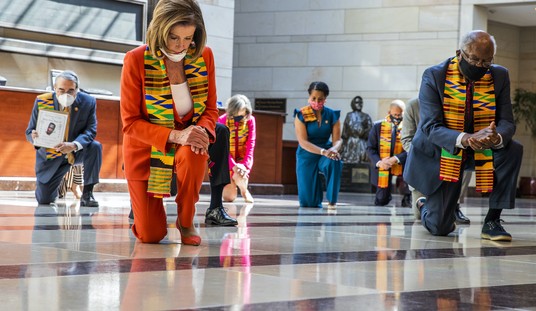In what looks like a Solomonic and almost unavoidable conclusion, the California Supreme Court acknowledged that voters in the state properly amended the Constitution to bar single-gender marriage. The ruling signals a victory for democracy over judicial fiat, as Proposition 8 reversed the same court’s declaration of the right to gay marriage. The court split the baby, figuratively speaking, by reaffirming the marriages conducted by California in the interim:
The California Supreme Court today upheld Proposition 8’s ban on same-sex marriage but also ruled that gay couples who wed before the election will continue to be married under state law.
The decision virtually ensures another fight at the ballot box over marriage rights for gays. Gay rights activists say they may ask voters to repeal the marriage ban as early as next year, and opponents have pledged to fight any such effort. Proposition 8 passed with 52% of the vote.
Although the court split 6-1 on the constitutionality of Proposition 8, the justices were unanimous in deciding to keep intact the marriages of as many as 18,000 gay couples who exchanged vows before the election. The marriages began last June, after a 4-3 state high court ruling striking down the marriage ban last May.
In an opinion written by Chief Justice Ronald M. George, the state high court ruled today that the November initiative was not an illegal constitutional revision, as gay rights lawyers contended, nor unconstitutional because it took away an inalienable right, as Atty. Gen. Jerry Brown argued.
The 6-1 split is significant. The previous ruling declaring gay marriage a right under California’s constitution was very narrow. Three of the judges who voted for that decision went the other direction today. They had little choice. California allows constitutional amendments by referenda, and the backers of Proposition 8 followed the law scrupulously in getting it on the ballot.
Confirming the marriages also appears to be the correct decision. When the couples got their licenses and had the ceremonies performed, the law in the state (as dictated by the court) allowed for those marriages. Proposition 8 changed the law, but it cannot apply ex post facto. Since those licenses were valid and backed by the state at the time they were issued, the court had little choice but to approve them — and their unanimous judgment speaks to the common sense conclusion.
However, that does set up an interesting point for a federal appeal. If the plaintiffs in this case argue against this dichotomy on an equal-protection basis, a federal court might find that intriguing enough to consider. Even if that doesn’t work, the plaintiffs plan on a new referendum that will reverse Proposition 8. Something tells me that this will be a more or less permanent feature on California’s ballots for the foreseeable future.
Update: I meant judicial fiat, not legislative fiat. Thanks to RBJ in comments for correcting me.








Join the conversation as a VIP Member